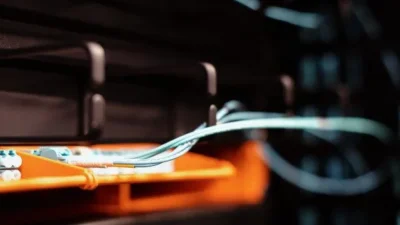Robots are a valuable commodity on the plant floor and won't be going away, but for some tasks they aren't as useful as human workers because they lack the ability to adapt and adjust to changing situations.
Repetitive production line tasks which have to be completed with precision, lend themselves to robots over humans as error can be eliminated and speed increased. One of the areas where robots have displaced humans is in the production of cars.
However, robotics and a high degree of customization don’t mix according to Mercedes-Benz, which has taken a look at its largest production plant at Sindelfingen in Germany (with about 26,000 workers it produced more than 400,000 vehicles in 2013), and decided to replace some robots with people.
Markus Schaefer, Mercedes-Benz head of production, said: "Robots can’t deal with the degree of individualization and the many variants that we have today."
Mercedes-Benz’s cars have a wide variety of customizable options. The S-Class sedan has an ‘optional equipment’ package in its online brochure that runs to several pages and includes multiple variations to details like upholstery and trim and even offers choices on electric roller blinds, armrest heating, and a range of steering wheels.
Robots lack flexibility
While robots are very useful for repetitive tasks, there are limits. Schaefer said, "They can’t work with all the different options and keep pace with changes." He said reprogramming robots to take account of production line changes can cause a production line to stop completely, which is detrimental to the company’s operations.
Mercedes-Benz, which has 129,000 employees working worldwide, in their cars division, plans to continue using robots, although there will be less larger robots and more smaller ones which work alongside humans.
Density of robots on the factory floor
This doesn’t mean, however, that robots don’t have a future on the production line. The International Federation of Robotics (IFR) published a report saying that 1.3 million industrial robots will be working in factories around the world by 2018.
The report says that there are currently 66 robot units per 10,000 employees worldwide. It says 21 countries have an above average robotic density at present, with 14 of these in the EU. The report notes that China is currently in 28th place on the density scale, but it remains the world’s largest sales and growth market for industrial robots. The report anticipates that China will account for more than a third of the industrial machines worldwide in 2018.
Sandra Vogel is editor at Internet of Business, which is hosting the Internet of Manufacturing Conference November 1-2, 2016, in Chicago. This article originally appeared here. Internet of Business is a CFE Media content partner. Edited by Chris Vavra, production editor, CFE Media, [email protected].
ONLINE extra
See additional stories about the Internet of Things (IoT) linked below.


